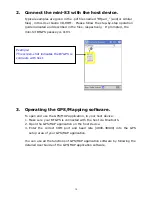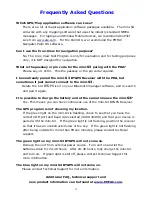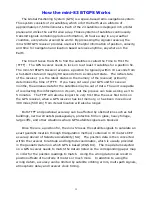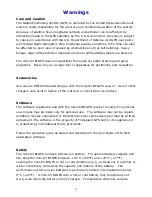
23
Glossary
Almanac data
A set of information that transmitted by each GPS satellite in orbit and the state of every satellite in
the GPS constellation. Each GPS satellite contains and transmits the almanac data set for the entire
GPS satellite system network. Almanac data allows the GPS receiver to rapidly acquire satellites
shortly after it is turned on.
Active Antenna
An antenna that amplifies the GPS signal before it sends it to the receiver.
Altitude
The distance between the current position and the nearest point on WGS 84 reference ellipsoid,
usually it is expressed in meters or feet and is positive outside the ellipsoid.
Baud
Bits per second. Also referred to as a baud rate.
Channel
Channel refers to a set of hardware in the receiver that detects locks on and continuously tracks the
signal from a single GPS satellite. The more channels available, the greater number of GPS satellite’s
signals a receiver can simultaneously lock and track. A receiver of 12 channels is the optimized
design, considering the current consumption, chip-package size and cost.
CEP - Circular Error Probable
CEP is the radius of a circle, centered at a true location, within which fifty percent of positioning
solutions fall. CEP is used to achieve horizontal accuracy.
C/N
o
Carrier-to-Noise density ratio. An indication of satellite signal strength received by the GPS receiver.
Cold Start
A condition in which the GPS receiver can arrive at a navigation solution without initial position, time,
current Ephemeris, and almanac data.
Constellation
Constellation refers to the specific set of orbiting GPS satellites system, used in calculating positions
or all the satellites visible to a GPS receiver at one time. The pattern created by the relative
positioning of a GPS satellite network is designed to achieve a very high probability of global satellite
coverage even in the event of satellite outages.
dB


































![Navig[8]r NAVBIKE-GPS User Manual preview](http://thumbs.mh-extra.com/thumbs/navig-8-r/navbike-gps/navbike-gps_user-manual_3574097-01.webp)

